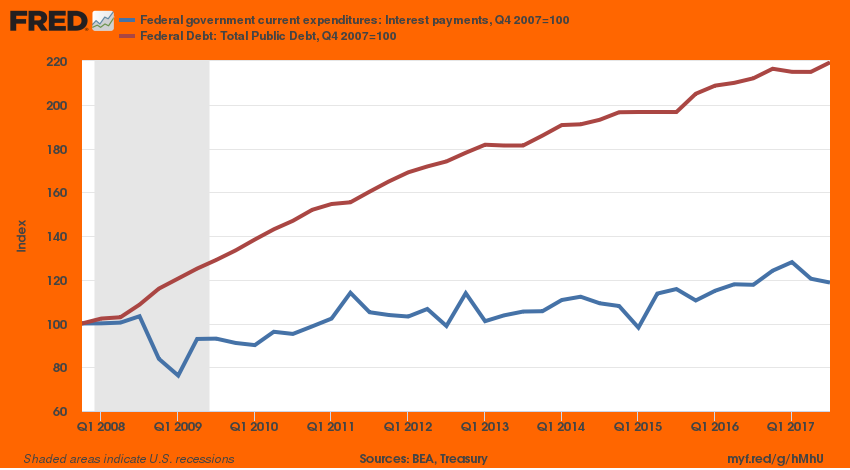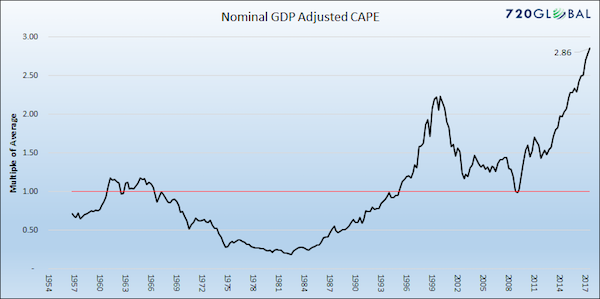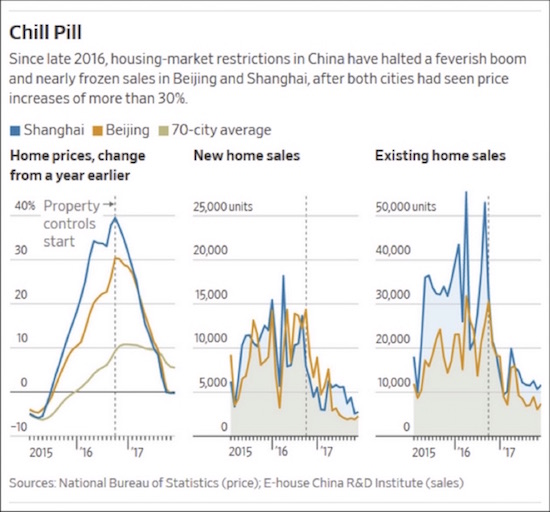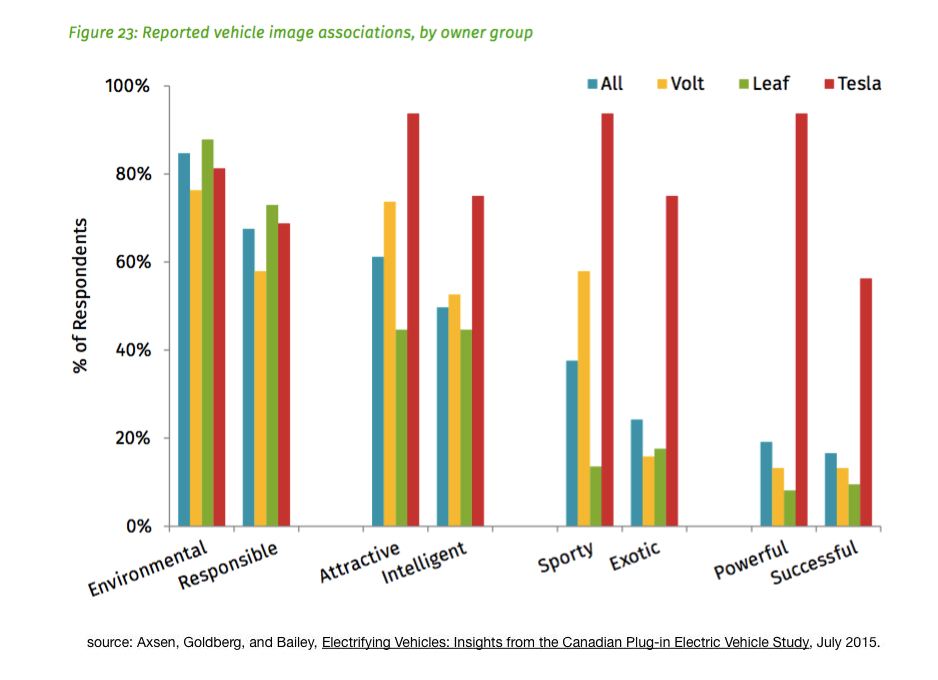
Horacio Coppola Avenida Díaz Vélez al 4800, Buenos Aires 1952

One Goldman alumni to another. And Trump repaired it somewhat, and then this morning the dollar falls again. Trump may address this in his speech today in Davos. Mnuchin never talked about anything but short term. Storm, teacup.
• Mario Draghi Slaps Down Steve Mnuchin Over Dollar Comments (Ind.)
The President of the European Central Bank, Mario Draghi, has taken a sideswipe at the US Treasury Secretary, Steve Mnuchin, for endorsing a weaker dollar, emphasising deep concerns among central bankers over the economically destabilising impact of exchange rate swings. At the ECB’s regular conference Mr Draghi referred indirectly to the surprising comments at the World Economic Forum on Wednesday by Mr Mnuchin, who said “a weaker dollar is good for us as it relates to trade and opportunities.” These comments sent the dollar, which has been trending lower since early 2017, down still further. The dollar index, which measures the traded value of the greenback against a basket of other currencies, including sterling and the euro, hit a three-year low of 88.5.
Mr Draghi complained to reporters in Frankfurt that although exchange rate movements were “a fact of nature” reflecting economic fundamentals some recent volatility was caused by “someone else” – a clear reference to Mr Mnuchin – whose “use of language…doesn’t reflect the terms of reference that have been agreed.” Mr Draghi cited an IMF communique from last year, signed by the US, which said: “We will refrain from competitive devaluations, and will not target our exchange rates for competitive purposes”. Asked directly by journalists whether the ECB Council had been concerned by the Treasury Secretary’s comments Mr Draghi answered in the affirmative. “Several members of the Council expressed concern, and this concern was also in a sense was broader than simply the exchange rate, it was about the overall status of international relations right now,” he said.

Objection, your honor. Leading.
• Mueller Almost Done With Obstruction Part of Trump Probe (BBG)
Special Counsel Robert Mueller is moving at a far faster pace than previously known and appears to be wrapping up at least one key part of his investigation – whether President Donald Trump obstructed justice, according to current and former U.S. officials. Mueller has quietly moved closer to those around Trump by interviewing Director of National Intelligence Dan Coats, National Security Agency Director Michael Rogers, Attorney General Jeff Sessions and former FBI Director James Comey in recent weeks, officials said. His team has also interviewed CIA Director Mike Pompeo, NBC News reported. Those high-level officials all have some degree of knowledge about events surrounding Trump’s decisions to fire Comey and Michael Flynn, his first national security adviser.
“Clearly the names that are coming out now indicate that we’re into the obstruction of justice side of it,” said Stanley Twardy, a former U.S. attorney for Connecticut who’s now a white-collar criminal defense lawyer. “He’s now getting people who are closest to the president, closest to the issues.” Next, Mueller is expected to schedule an interview with Trump in coming weeks to discuss those events, according to a person familiar with the matter. “I’m looking forward to it,” Trump said of a meeting with Mueller, which he suggested may happen in about two to three weeks. He told reporters at the White House Wednesday that “I would love to do it” and “I would do it under oath” even though his Democratic rival Hillary Clinton wasn’t sworn in when she was interviewed in 2016 over her use of private emails as secretary of state.
Even if Mueller wraps up the obstruction probe, other elements of his investigation – such as whether Trump or anyone close to him helped Russia interfere in the 2016 presidential election or broke any other laws — are likely to continue for months more, said two officials who asked to remain anonymous speaking about the probe.

New York Times based on anonymous sources as usual.
• Trump Denies Trying To Fire Mueller (BBC)
US President Donald Trump has described as “fake news” a report that he ordered the firing of special counsel Robert Mueller last June, but backed down when his own lawyer threatened to resign. White House counsel Donald McGahn said the sacking would have a “catastrophic effect” on the presidency, the New York Times reported. Mr Mueller is leading an inquiry into possible Trump campaign collusion with Russia to influence the US election. Both Moscow and Mr Trump deny this. “Fake News. Typical New York Times. Fake Stories,” Mr Trump said at the World Economic Forum in the Swiss town of Davos, where he is due to give a speech later.
He has also been speaking about other issues: • Russian news agency Tass quoted Mr Trump as saying he “hoped” for more dialogue between the US and Russia • White House officials said Mr Trump was open to rejoining the Paris climate change agreement, if better terms for the US could be agreed • Mr Trump will say in his speech that he is in favour of “fair and reciprocal” free trade but will not tolerate trade abuses and intellectual property theft, according to US officials
Mr Mueller, a former FBI director, was appointed special counsel last May to look into the collusion allegations.

Nobody acknowledges the importance of price discovery anymore. Without which there are no functioning markets. How fast people forget.
• Flying Blind, Part 2: The Destruction Of Honest Price Discovery (Stockman)
[..] the real economic iniquity of central bank driven Bubble Finance is that it destroys all the pricing signals that are essential to financial discipline on both ends of the Acela Corridor. And as quaint at it may sound, discipline is the sine qua non of long-term stability and sustainable gains in productivity, living standards and real wealth. The pols of the Imperial City should be petrified, therefore, by the prospect of borrowing $1.2 trillion during the upcoming fiscal year (FY 2019) at a rate of 6.0% of GDP during month #111 through month #123 of the business expansion; and doing so at the very time the central bank is pivoting to an unprecedented spell of QT (quantitative tightening), involving the disgorgement of up to $2 trillion of its elephantine balance sheet back into the bond market.
Even as a matter of economics 101, the forthcoming $1.8 trillion of combined bond supply from the sales of the US Treasury ($1.2 trillion) and the QT-disgorgement of the Fed ($600 billion) is self-evidently enough to monkey-hammer the existing supply/demand balances, and thereby send yields soaring. But that’s barely the half of it. All the laws of economics, which are now being insouciantly ignored by the stock market revilers, are also time and place bound. That is to say, deficit finance in a muscle-bound Welfare State/Warfare State democracy like the US is always a questionable idea. After all, it is virtually guaranteed based on the budgetary doomsday forces now at work that by 2030 the public debt will approach $40 trillion compared to the $930 billion level where it stood when the Gipper took office in January 1981. In a half century, therefore, the GDP – swollen by inflation notwithstanding – will have grown by 8.5X versus a 43X eruption of the debt.

[..] At the present time, the S&P 500 is trading at the absurd multiple of 26.3X what are estimated to be reported profits for 2017. Yet the sell-side stock peddlers say not to worry because the one-year forward multiple on ex-items earnings is still only in the high teens. So what! The business cycle has not been outlawed and this one has at best a few quarters or even a year or two to go. So forward earnings are irrelevant nonsense. They are an interim place holder before the 30% to 50% hit to profits happens when the US economy finally experiences its next rendezvous with recession. The very idea that you would value the market based on a timeless forward PE multiple is complete baloney, of course. Yet that’s exactly where the Fed’s drastic financial repression and destruction of honest price discovery has led.


That is one graph.
People have been predicting Chinese real estate crashes for years. Eventually they will be right. Is that time approaching? Here’s the lead from a January 16 Wall Street Journal story, “China’s Hot Housing Market Begins to Cool.” “BEIJING—China’s housing market has defied gravity and government restraints for two years, floating on a tide of bank loans and speculation. Until now. In Beijing and Shanghai – two of the country’s largest markets – and other megacities, sales have stalled and prices have dropped, falling slightly in some pockets and dramatically in others. Demand has dried up in these areas as a result of government measures including higher mortgage rates, higher down-payment requirements and limits on buying a second or third home. Would-be sellers are increasingly putting plans on hold in hope that prices will rebound.” That doesn’t sound good at all. WSJ backs up the gloomy language with data, though:

Some of this shake-out is happening by design as the government tries to manage growth on a sustainable path. The picture also varies greatly by city and region. Beijing and Shanghai are China’s equivalents of Washington and New York – except that they are much, much larger. What happens to them affects the whole country to some degree – and other countries, too. By some estimates, China’s property market accounts for a third of GDP growth. Falling construction activity will mean less need to import construction materials from Australia – and maybe fewer Chinese buyers in Canada. Falling demand won’t be good for housing prices in either of those places.
Then there are wild cards. President Trump has so far held back on promises to crack down on trade with China, in part because he wants Beijing’s help managing the North Korea issue. I doubt he will wait forever. He has a lot of latitude to impose tariffs, quotas, and other restrictions on China. Ironically, a peaceful resolution on the Korean Peninsula might be economically negative if it removes a barrier to trade war.

Bunch of hipsters.
• Dear Elon: Tesla’s Base Is Not the Model S Coalition (Klippenstein)
Losing the Obama coalition cost Hillary Clinton the Presidency in 2016; her base wasn’t big enough to bring success. Losing the Model S coalition could cost Elon Musk his own dreams, because his base isn’t big enough on its own, either. The Model S coalition of technophiles (techies) and progressives gave Tesla a strong tailwind when the vehicle launched. Techies formed the base, while progressives were the balance of the coalition. But while they came together for the Model S to strike a blow against Big Oil, these two groups aren’t natural allies.
We can see the rift growing in real time: while techies continue to celebrate Amazon, Uber, and Silicon Valley in general, there’s an escalating progressive backlash against labor conditions at warehouse distribution centres, more and more and more and more evidence of Uber’s culture of toxic lawlessness, and the obscene excesses of startup culture (which include a Dickensian digital class divide, possibly-endemic sexism, predatory sex parties and entitlement complexes worthy of the sons of Trump — and that’s only the stuff we know about so far).
The difference between the groups is aptly captured in the 2015 Canadian Plug-in Electric Vehicle study conducted by Simon Fraser University in Canada (webpage here, full report here, executive summary here).
Figure 23 from the SFU Canadian Plug-in Electric Vehicle Study 2015
The chart above shows the results of a study of Volt, Leaf, and Model S early adopters who were asked what images would be attributed to their vehicles. This tells us something about the buyers, because consumers purchase products whose so-called “symbolic benefits” (the brand, basically) match their own self-image, values, interests, and aspirations.
Volt and Leaf owners (yellow and green bars, respectively) are pretty similar, except when it comes to thinking their vehicle is attractive or sporty — the styling of the Leaf 1.0 is, shall we say, an acquired taste! Joking aside, this tells us that first-generation Leaf 1.0 buyers, like first-generation Prius buyers before them, really didn’t care about style. These people, and others of like mind, form the progressive coalition. The Tesla early adopters are different in two categories, and extremely different in four, suggesting that Tesla buyers have different motivations than Volt and Leaf owners. Tesla’s “tribe” wants status goods – which for automobiles means something sporty, exotic, powerful, and successful. They’re Tesla’s techie base.

As if that is the most important thing as the ship sinks.
• Tory Civil War Erupts Over Brexit (Ind.)
A fresh outbreak of Tory infighting is threatening Theresa May’s leadership after Philip Hammond vowed to keep Britain interlocked with the EU – while hard Brexit supporters staged an open revolt. The Prime Minister was accused of “losing control of the Brexit process” as the two wings of her party fought over her withdrawal policy, which Eurosceptics increasingly see as a sellout. In Davos, the Chancellor inflamed tensions with a dramatic call for only “very modest” changes to the UK’s trading rules with the EU, setting out the risks of trying to break free. He went out of his way to praise the plea by the CBI employers’ organisation for the “closest possible relationship between the EU and the UK post-Brexit” – days after it called for permanent membership of the customs union.
Britain must not agree to anything that “throws away all the benefits we have of the complete alignment of our regulatory systems, the complete integration of our economies”, Mr Hammond said. He later sought to clarify his remarks by saying “for anyone concerned” that the UK would be outside the customs union and single market “which clearly represents change”. But, in a major speech, Jacob Rees-Mogg put himself at the head of a growing Brexiteer revolt. The Government was accused of planning to leave the UK “shackled to the EU” and of putting the free-trade benefits of Brexit “at risk”. “The British people did not vote for that. They did not vote for the management of decline,” Mr Rees-Mogg told an audience in Hampshire. “They voted for hope and opportunity and politicians must now deliver it.

Uk and US have much in common.
• Seven in 10 UK Workers Are ‘Chronically Broke’ (G.)
Economic insecurity has become the “new normal” in the UK with at least 70% of the UK’s working population “chronically broke”, according to a study by the thinktank the Royal Society of Arts. Thriving, striving or just about surviving, the RSA/Populus survey of more than 2,000 workers, found that while about 30% of respondents said they lived comfortably, 40% said their finances were permanently precarious. The remaining 30% said they were not managing to get by. “Economic insecurity now stretches right throughout our labour market, including within jobs that appear safe on the surface,” said Brhmie Balaram, the author of the report and a senior researcher at the RSA.
According to the report, 32% of the UK’s workers have less than £500 in savings and 41% have less than £1,000. Almost 30% are concerned about their level of debt while 43% of workers do not have anyone in their household they could depend on to support them financially in the event of hardship. Fewer than half of employees (44%) feel they have progressed in their careers over the last five years; only 40% feel they have good opportunities to progress in future. “From retail workers to warehouse operatives, and from care workers to cleaners, we are beginning to uncover the hidden millions who are chronically broke year in, year out,” said Balaram. “The real danger for this group of workers is a childcare bill unpaid and yet another rent rise around the corner.”

Anyone want to argue the UK is NOT a class society?
• Rough Sleeping Is Now A Routine Sight In UK (G.)
Rough sleeping in the north London borough of Camden has increased by 647%, according to government figures released on Thursday. The huge rise is accounted for in part by an official underestimate of the problem last year, but no one who lives here will be surprised to see it confirmed that there has been a sharp jump in the numbers of people sleeping on the streets. Camden reported the largest increase in rough sleeping of any area in England, from 17 rough sleepers in 2016 (an optimistic estimate) to 127 counted this year. Ten years ago there were almost no rough sleepers in Camden. So what’s gone wrong? The Labour-run council says it’s clear that cuts are to blame. Councillor Nadia Shah said: “Rough sleeping in Camden is now at unprecedented levels. This is an appalling situation made worse by the politics of austerity that have led to cuts in services across the country.”
Nationally, welfare reform and cuts to benefits have increased financial insecurity, while soaring rents and reductions in the permitted housing benefit payments have left many people with an impossible gap between rent owing and income. On top of this, changes to the way housing benefit is paid have increasingly meant money no longer goes straight to the landlord but to the tenant, which has led to a sharp rise in arrears and evictions. Huge pressure on mental health services means vulnerable people are not getting the support they need. Drug and alcohol addiction services are struggling financially. Reductions to local authority budgets mean Camden’s funding from central government will have fallen by half between 2010 and 2020. In 2019-20 the council is forecast to receive £106m, down from the £241m received in 2010-11.

How political is the British court system?
• Assange to Ask UK Court to Lift Arrest Warrant (BBG)
After more than five years holed up in Ecuador’s embassy in London, WikiLeaks leader Julian Assange will ask a U.K. court to lift his arrest warrant. A one-day hearing will take place at Westminster Magistrates court and a ruling is scheduled to be issued Friday, according to a spokesman for the Crown Prosecution Service. Assange, 46, has been in the Ecuadorian embassy in London since evading deportation in a Swedish sexual assault probe. It’s “theoretically possible” that Assange could be released Friday, the CPS spokesman said. Assange and WikiLeaks have become famous over the past decade for disclosing confidential documents about the U.S. government and politics. In 2016, WikiLeaks injected itself into the middle of the U.S. presidential race by publishing hacked emails from Hillary Clinton’s campaign.
Assange is asking the court to lift the warrant about eight months after Swedish prosecutors dropped the underlying rape probe, saying that his steps to evade questioning made it impossible to pursue the case. Assange sought refuge in the Ecuadorian embassy in June 2012, after exhausting options in U.K. courts to avoid extradition over the allegations stemming from a 2010 trip to Sweden. He refused to return to the Scandinavian country, citing risks he would be extradited to the U.S. London police say that warrant is still in force unless lifted by court. “Westminster Magistrates’ Court issued a warrant for the arrest of Julian Assange following him failing to surrender to the court” in 2012, the police said in an emailed statement. “The Metropolitan Police Service is obliged to execute that warrant should he leave the embassy.”

Last time they were on the brink of war was 1996. Never far away.
• Turkish PM Disputes Greek Sovereignty, Tsipras Cites ‘Aggressive Neighbor’ (K.)
Turkish Prime Minister Binali Yildirim has again disputed Greece’s sovereignty over parts of the Aegean Sea, while accusing Athens of building up bilateral tension while Ankara is busy fighting what he described as “terrorism” in its wider region. In comments made to local media on Wednesday, Yildirim accused Athens of pursuing a repeat of the 1996 Imia crisis, when the two countries came to the brink of war over ownership of the uninhabited Aegean islets, adding that such an attempt “will not go down well” in Ankara. “In case something similar occurs, there are always means at Turkey’s disposal to defend itself. Let there be no qualms about that,” he said. Turkey disputes Greece’s territorial sovereignty over the rocky formations, known in Turkish as Kardak, on the basis of its “gray zones” theory.
Last week, a Turkish patrol boat conducting a dangerous maneuver bumped into a Hellenic Navy gunboat near Imia. No damage was reported from the contact. Meanwhile, notwithstanding Turkey’s ongoing air and ground operation in the Afrin region of northern Syria aimed at fighting Syrian Kurdish fighters and Islamic State militants, violations of Greek air space by Turkish fighter jets continue, if at a lower rate. A mock dogfight between Greek and Turkish F-16s took place northwest of Lesvos island on Wednesday at 2.35 p.m. The issue of Turkey’s provocations was raised on Wednesday by Greek Prime Minister Alexis Tsipras, who, speaking at the World Economic Forum in Davos, described Turkey as an “aggressive neighbor, sometimes unpredictable with an aggressive military activity in the Aegean.” “For somebody, it is very easy to be also aggressive if they are living in Luxembourg or Netherlands, because their neighbors are Belgium and Luxembourg, and not Turkey. But it’s not so easy for us,” he said in English.

In a bankrupt country. Greece should demand hundreds of billions from the EU to handle this.
• Majority Of Refugees Stranded On Aegean Islands To Stay In Greece (K.)
The majority of migrants and refugees who have landed on the Aegean islands since the March 2016 deal signed between the European Union and Ankara will remain in Greece as conditions for their return to Turkey are considered “not safe,” according to data from the country’s Asylum Service. According to the data, authorities have processed 25,814 applications for asylum submitted by individuals stuck at island screening centers, or hotspots. Authorities have rejected 5,437 of those claims and, under the terms of the deal, the applicants should be returned to Turkey. However, only around 1,400 of that number have been returned so far. Meanwhile, 20,337 people have received permission to move to the Greek mainland. They will move to the next stage of their asylum process, provided that they are not enlisted in a European relocation schemes. A total of 21,726 mostly Syrian refugees were relocated from Greece to other EU member-states under a program which was completed in 2017.

Sometimes a headline is enough.
• 1.7 Billion-Year-Old Chunk Of Canada Found Stuck To Australia (Ind.)
A chunk of what is now Canada broke away from the rest of North America and collided with Australia around 1.7 billion years ago, according to a new study. A team of geologists examining rocks found in northern Queensland concluded some of them did not appear to have originated in Australia, and had characteristics more common among those found in Canada. They say the discovery indicates the region surrounding present-day Georgetown in northern Queensland broke apart from the continent of North America during its early formation and smashed into what is now known as Australia. “Our research shows that about 1.7 billion years ago, Georgetown rocks were deposited into a shallow sea when the region was part of North America,” said Adam Nordsvan, a PhD student at Curtin University, who led the study published in the journal Geology.
“Georgetown then broke away from North America and collided with the Mount Isa region of northern Australia around 100 million years later.” The discovery provides scientists with new evidence about the formation of the ancient supercontinent, Nuna – a land mass made up of many of the continents we know today. Over millennia, the Earth’s continents have slowly moved around, reorganising themselves into different combinations, and Mr Nordsvan and his collaborators are trying to understand some of these ancient movements. “This was a critical part of global continental reorganisation when almost all continents on Earth assembled to form the supercontinent called Nuna,” said Mr Nordsvan. Nuna existed long before the more well-known supercontinent of Pangaea, which was formed around 335 million years ago.

We have no idea of our own history.
• Human Ancestors Left Africa Far Earlier Than Previously Thought (G.)
A prehistoric jawbone discovered in a cave in Israel has prompted scientists to rethink theories of how the earliest human pioneers came to populate the planet, suggesting that our ancestors left Africa far earlier than previously thought. The fossil, dated to nearly 200,000 years ago, is almost twice as old as any previous Homo sapiens remains discovered outside Africa, where our species is thought to have originated. Until recently, several converging lines of evidence – from fossils, genetics and archaeology – suggested that modern humans first dispersed from Africa into Eurasia about 60,000 years ago, quickly supplanting other early human species, such as Neanderthals and Denisovans, that they may have encountered along the way. However, a series of recent discoveries, including a trove of 100,000 year-old human teeth found in a cave in China, have clouded this straightforward narrative.
And the latest find, at the Misliya cave site in northern Israel, has added a new and unexpected twist. “What Misliya tells us is that modern humans left Africa not 100,000 years ago, but 200,000 years ago,” said Prof Israel Hershkovitz, who led the work at Tel Aviv University. “This is a revolution in the way we understand the evolution of our own species.” The find suggests that there were multiple waves of migration across Europe and Asia and could also mean that modern humans in the Middle East were mingling, and possibly mating, with other human species for tens of thousands of years. “Misliya breaks the mould of existing scenarios for the timing of the first known Homo sapiens in these regions,” said Chris Stringer, head of human origins at the Natural History Museum in London. “It’s important in removing a long-lasting constraint on our thinking.”

Plastic carrying disease.
• A Third Of Coral Reefs ‘Entangled With Plastic’ (BBC)
Plastic is one of the biggest threats to the future of coral reefs after ocean warming, say scientists. More than 11 billion items of plastic were found on a third of coral reefs surveyed in the Asia-Pacific region. This figure is predicted to increase to more than 15 billion by 2025. Plastic raises by 20-fold the risk of disease outbreaks on coral reefs, according to research. Plastic bags, bottles and rice sacks were among the items found. “Plastic is one of the biggest threats in the ocean at the moment, I would say, apart from climate change,” said Dr Joleah Lamb of Cornell University in Ithaca, US. “It’s sad how many pieces of plastic there are in the coral reefs …if we can start targeting those big polluters of plastic, hopefully we can start reducing the amount that is going on to these reefs.”
More than 275 million people rely on coral reefs for food, coastal protection, tourism income, and cultural importance. It’s thought that plastic allows diseases that prey on the marine invertebrates that make-up coral reefs to flourish. Branching or finger-like forms of corals are most likely to get entangled in plastic debris. These are important habitats for fish and fisheries, the scientists say. “A lot of times we come across big rice sacks or draping plastic bags,” said Dr Lamb, who led the study. “What we do find is these corals with a lot of complexity like branches and finger-like corals will become eight times more likely to be entangled in these types of plastics.” In the study, published in the journal Science, international researchers surveyed more than 150 reefs from four countries in the Asia-Pacific region between 2011 and 2014.










Home › Forums › Debt Rattle January 26 2018